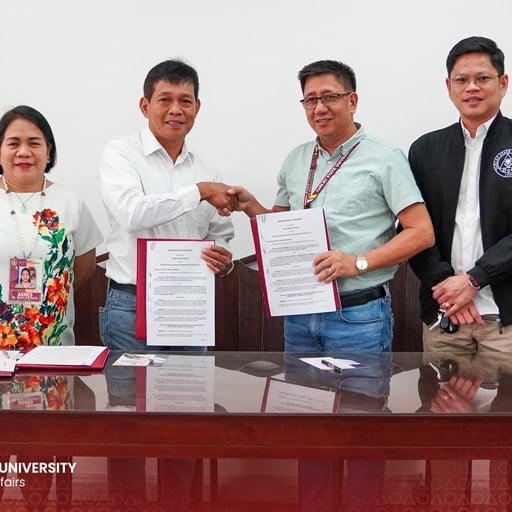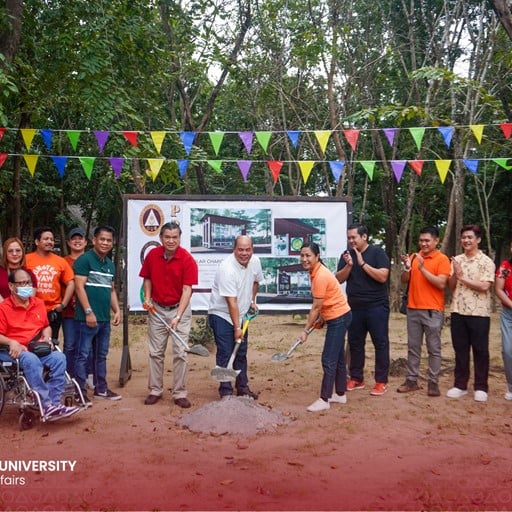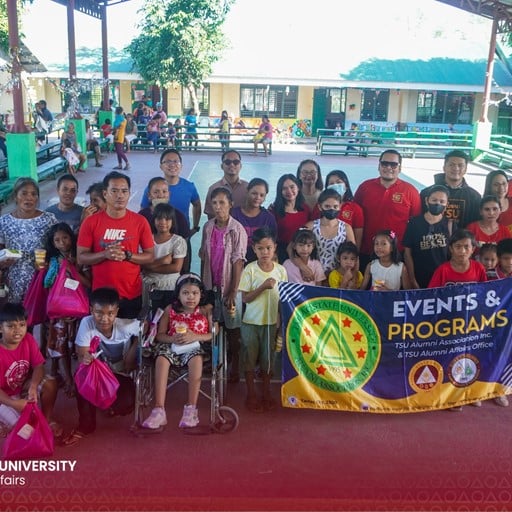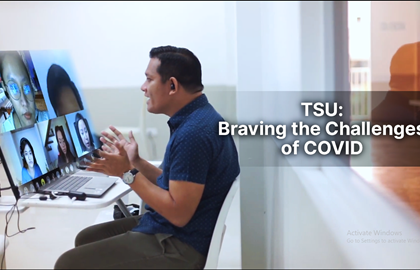Recycling is one of the best ways to have positive impact on the world in which we live, it is important to both natural environmental and us. The TSU promotes and established the recycling program in the university by using of non-environmentally acceptable products (NEAPs), following the 3-R approach (Reduce, Reuse, Recycling), proper segregation of waste, disposal of Hazardous Waste by DENR Accredited and adopting vermicomposting (the process by which worms are used to convert organic materials (usually waste) into a humus-like material known as vermicompost.
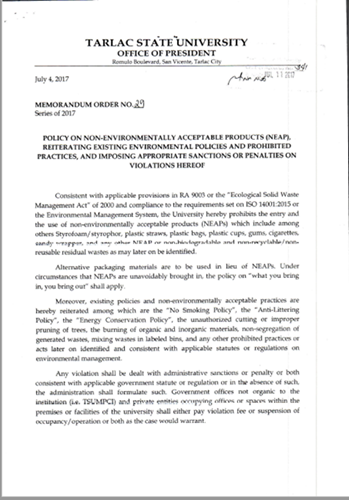
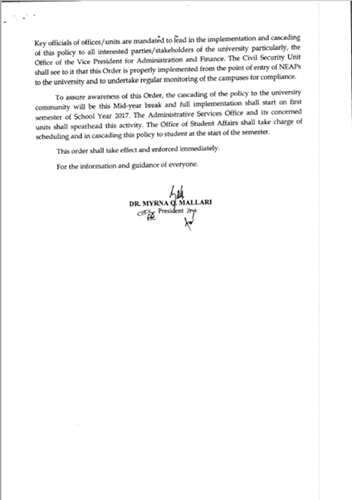
The University Non-Environmentally Acceptable Products (NEAP) established policy for reiterate “No Smoking Policy”, “Anti-littering Policy” and “Energy Conservation Policy”.
Amid pandemic, the university established a waste segregation guideline for new normal to guide the TSU community on proper segregation of waste, it includes the Biodegradable, Non-biodegradable, recyclable, and infectious waste.
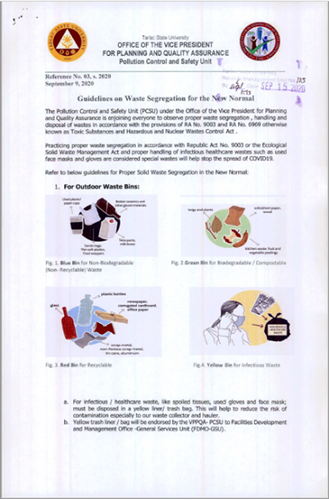
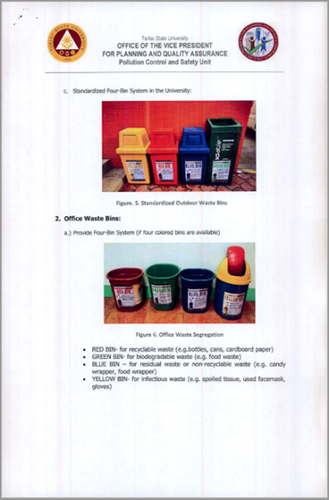
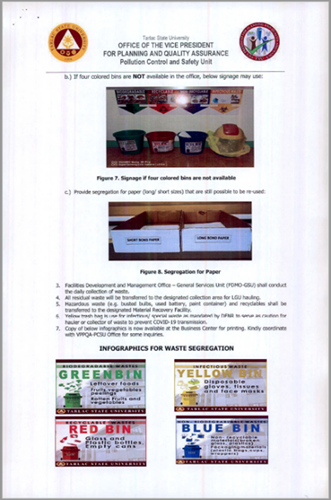
Waste Segregation for New Normal
Disposal of Hazardous Waste
According to RA 6969 “Toxic Substances and Hazardous and Nuclear Wastes Control Act of 1990” states that every establishment must disposed all hazardous wastes. To continually protect and preserve the environment the university Pollution Control and Safety Unit consistently monitors and assist the disposal of all hazardous chemicals in the university that can harm the environment.
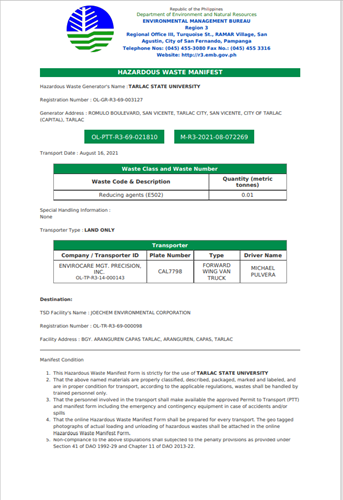
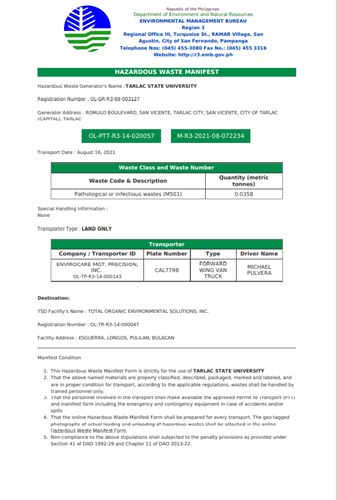
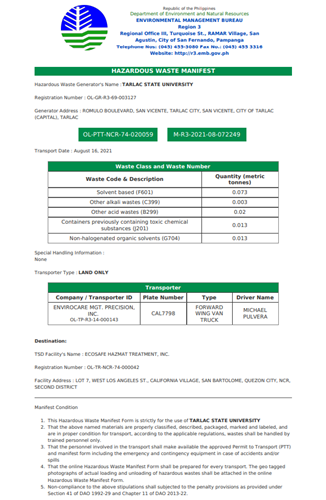
Hazardous Waste Manifest
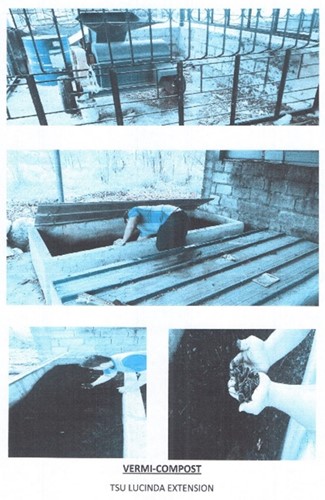
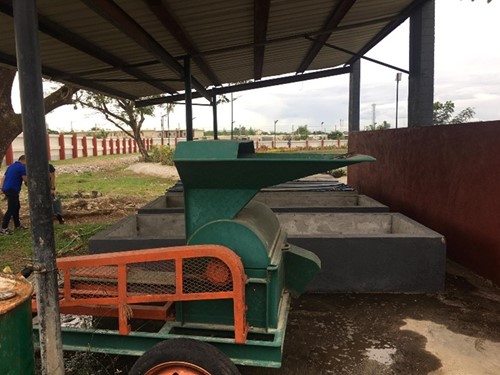
Vermicomposting at TSU Lucinda Extension Campus
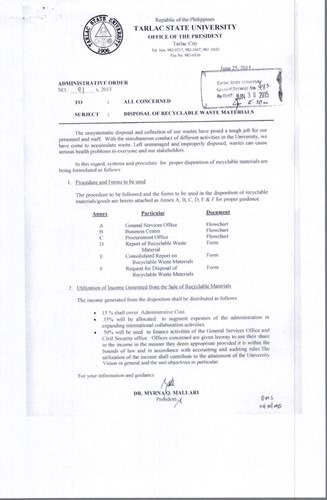
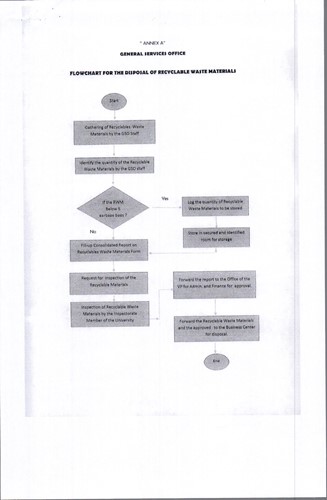
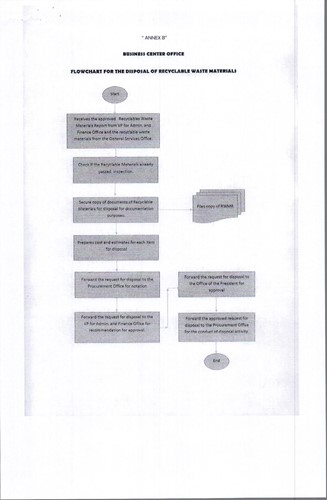
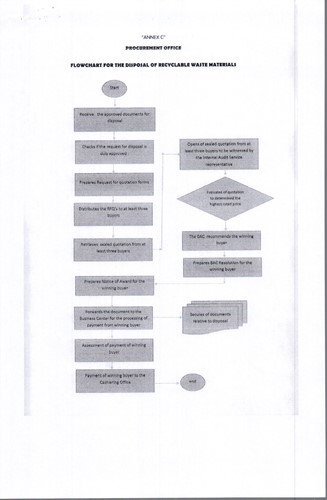
Disposal of Recyclable Materials



